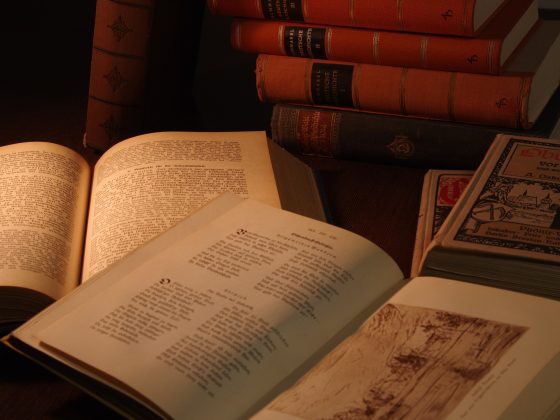Starting a Claim
Subject to a few exceptions, such as land and employment disputes, civil claims are commenced in High Court (claims above HK$3,000,000), District Court (claims from HK$75,001 to HK$3,000,000) or Small Claim Tribunal (claims below HK$75,000). The claim procedure in District Court and High Court is largely similar.
Subject to the nature of the claims, most of the civil proceedings are started by filing a Writ of Summons. The purpose of the Writ of Summons is to identify the parties in the proceedings their names and addresses, and the nature of claim. Once the Writ of Summons is issued, the Plaintiff has one year to effect service of the Writ of Summons on the Defendant.
The Writ of Summons contains an Acknowledgement of Service of Writ of Summons for the Defendant to complete and file into Court, indicating whether the claim will be defended. It should be filed within 14 days from the Writ of Summons being served on the Defendant.
Pleadings
The first stage of the civil proceedings is known as “pleadings”. The purpose of the pleadings is for the parties to set out their material facts pertaining to the claims, and identify the issues in dispute.
The Plaintiff’s claim is to be set out – or “pleaded” – in the Statement of Claim.
The Defendant has 28 days after filing the Acknowledge of Service, or 28 days after receiving the Statement of Claim, to file and serve the defence. If the Defendant has counterclaim against the Plaintiff, it will also be pleaded in the same document as defence and counterclaim. The Plaintiff has 28 days after receiving the defence and counterclaim to file and serve the reply and defence to counterclaim.
The parties may request further and better particulars from each other. The purpose of the further and particulars is often to define a party’s case and the issues in dispute. The request and the answers to such further and better particulars will form part of the pleadings.
In the absence of defence from the Defendant, or defence to counterclaim from the Plaintiff, default judgment can be entered. If a defence is filed but it does not disclose a genuine defence to a claim, the claimant can consider applying for summary judgment. However, summary judgment will only be entered if the Court finds that it is safe to enter against a defendant without hearing his defence at trial, so it is only in obvious cases that a summary judgment will be granted.
Pleadings are important because it confines the issue in dispute. The parties cannot introduce new cause of action without having it properly set out in the pleadings at trial, hence it is advisable for pleadings to be drafted by experience advocate. Pleadings can be amended at any stage of the proceedings, but the amending party will be ordered to pay costs against the innocent party for such consequential amendment to his own pleadings, hence it is advisable for pleadings to be properly drafted in the first place.
Third Party
If the Defendant believes that other party should be responsible for the Plaintiff’s claim instead, he can issue a notice to such third party to bring them into the proceedings. The Court shall direct that pleadings shall be exchanged among the third party and the other parties.
Interlocutory
The second stage of the civil proceedings is known as “interlocutory”. The parties are to disclose their evidence in support of their own case. Evidence includes documentary evidence, witness’s testimony and expert opinion.
- Documentary Evidence
The parties may rely on documents to prove their case. Such documents shall be disclosed by filing and exchanging “List of Documents”, setting out all documents in their respective possession and control which are relevant to the issues in dispute, irrespective whether such documents support their own cases. Afterwards, the parties have 7 days to inspect the documents disclosed by the other side, either by requesting a copy of those documents, or arranging a time and a place to inspect the originals.
If one party believes there are further documents in the possession of other party, they can apply to Court to compel the other party to produce such documents.
- Witness Testimony
Witnesses who are to testify at trial will be required to make a witness statement setting out what they will say. Cross examination shall be based on the contents of the witness statement, and, unless with permission from the Court, witnesses cannot introduce new contents to their testimony at the last minute. Hence it is important for the witness statements to be carefully considered and written.
- Expert Opinion
The parties may rely on the expert opinion to substantiate their case or quantify their losses. The Court may require the parties to agree to appoint a single joint expert to produce an impartial professional opinion, or allow the parties to introduce the opinion their own expert at trial. The court expects the expert to assist the Court and wishes to hear the expert’s own independent professional opinion. If there are disagreements between two experts from opposite parties, the disagreements should be based on the professional judgments of the expert not to be biased by the interest of the party who engaged him. The expert shall also observe the Code of Conduct prescribed by the Hong Kong Judiciary.
- Case Management
The process of the interlocutory stage is governed by a combination of the Rules of High Court and directions given by the Court.
List of Documents are to be exchanged 14 days after close of pleadings, i.e. 14 days after last document at the pleading stage is filed and served. Questionnaires are to be completed by the parties in order to assist the parties to reach an agreement over further process at the interlocutory stage, failing which to be ordered by a Master. A date will be fixed for Case Management Conference, a mile-stone date which the parties are expected to have complied with all directions at interlocutory stage and proceed with trial. Any adjournment will be subject to the Court’s scrutiny with necessary further directions and adverse costs order against a party. The parties are also expected to give an indication to Court the length of trial before a date is fixed for the same.
Our team at Hugill & Ip has extensive experience in dealing with Dispute Resolution issues – so kindly get in touch with us to find out how we can help.
This article is for information purposes only. Its contents do not constitute legal advice and readers should not regard this article as a substitute for detailed advice in individual instances.




